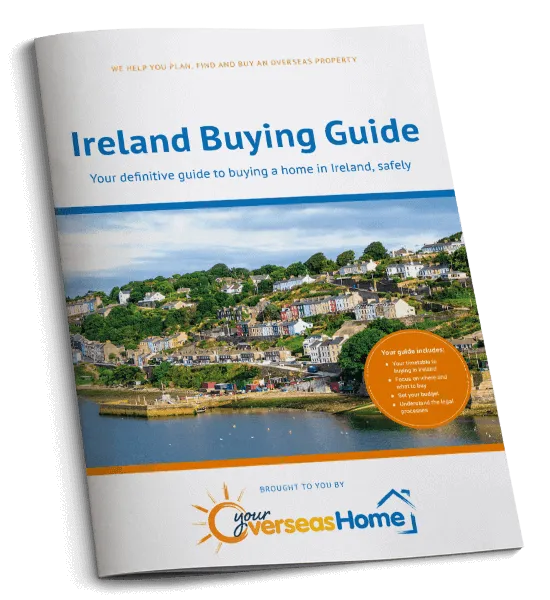Managing your finances after you move to Ireland
The financial considerations of an international move don’t just stop the minute the property is purchased. Here we outline the key financial considerations for after you purchase.
Even after your property purchase is complete, there remain a number of important financial considerations you’ll have to plan for. You’ve made your dream move to Ireland, now you need to take the right steps to manage your finances.
Tax considerations
Consult a qualified tax lawyer and independent financial adviser to ensure you’re aware of all of your tax liabilities. There are numerous taxes associated with owning property in Ireland that need to be dealt with correctly. Your new tax liabilities will depend upon where you are considered ‘resident’ and what your property is used for. You will usually be considered resident if you spend more than 183 days in Ireland per year. If you’ve retained assets in the UK, or are receiving a UK income, you will still be liable to pay tax on these back home. Each individual’s circumstances will differ. The only way to ensure complete peace of mind is to consult an expert. Click here to be put in touch today.
If you’ve retained assets in the UK, or are receiving a UK income, you will still be liable to pay tax on these back home.
Claiming your pension
If you’ve been claiming a pension in the UK, you will need to establish the best way of receiving these payments moving forwards. If you have decided to keep having your pension paid into a UK account, to get the most from your savings, we recommend setting up a Regular Payments Plan with Smart Currency Exchange. Your trader can help you set up a standing order that automatically sends your funds to your Irish account on the dates that you outline, at an exchange rate that you have agreed upon, making it a hugely useful budgeting tool.
You also need to take the necessary steps to avoid paying tax on your pension, or other income, more than once. To establish how to do so, and to learn more about Ireland’s tax criteria, we recommend speaking to a qualified independent financial advisor who will be able to advise on how to get the most from your savings. Contact the Resource Centre on 020 7898 0549 to be put in touch today.

You need to take the necessary steps to avoid paying tax on your pension more than once
Irish cost of living
In order to budget effectively, you will need to consider the cost of living in Ireland, including utility bills, the cost of transport, socialising, and day-to-day costs like grocery shopping. Although Ireland is similar to the UK in cost, it will be beneficial for you to know what to expect, so that you can plan accordingly. Each year the Ireland Property Guide conducts a Cost of Living survey comparing the cost of life in the UK and Ireland.
If you’re transferring finances to Ireland to pay utilities and to cover day-to-day living costs, it’s important to manage these transfers effectively. Contact Smart Currency Exchange today about how to secure the best rates and save yourself money today.
If you plan to let your new property to generate an income, you will need to understand the legal requirements.
Letting your property
If you plan to let your new property to generate an income, you will need to understand the legal requirements. If you’ll be living in the UK while your Irish property is being rented, it might prove wise to employ the services of a property management company to manage its day-to-day running. These companies will help you find tenants, or holiday lettings, and will take care of cleaning, maintenance, and welcoming guests. This will make things much easier for you in the long run. Before you can let out your property, you will need to have the right insurance in place. This means securing a specific policy for either letting it out to holidaymakers, or renting it to long-term tenants.

The Ireland Buying Guide takes you through each stage of the property buying process, with practical recommendations from our experts who have been through the process themselves. The guide will help you to:

